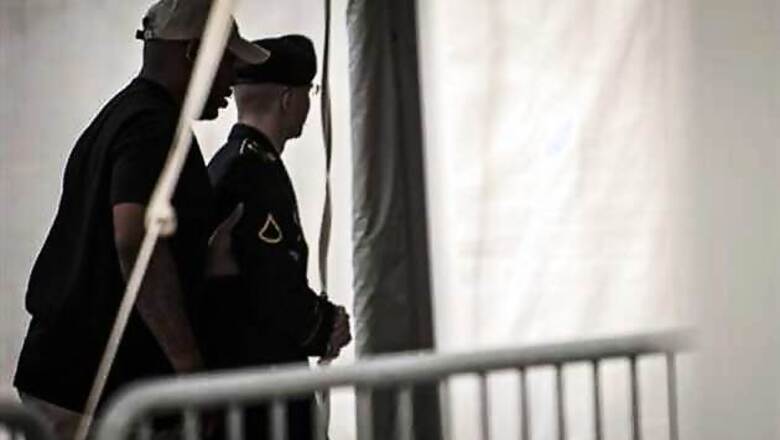
views
A US State Department official contended in court on Friday that convicted soldier Bradley Manning's leaks of classified diplomatic cables led to foreign informants being moved over fears for their safety.
The official, Michael Kozak, was called by US military prosecutors to testify in the sentencing phase of Manning's court-martial over the purported damage done by anti-secrecy website WikiLeaks' publication in 2010 of hundreds of thousands of documents and video it received from the Iraq-based soldier.
But Kozak would not say how many people were moved or put at risk, saying he felt that information was classified.
Pressed by Judge Colonel Denise Lind to explain why she should not treat his assessment as hearsay, Kozak acknowledged: "It's not the kind of thing I can put a precise measure on."
The judge ordered Kozak's testimony to continue behind closed doors to discuss specific cases.
Kozak, a former ambassador to Belarus, told the court on the third day of Manning's sentencing hearing that his office was involved at least twice with foreign informants who had to be moved because there was "very genuine concern" they would be killed by "non-state actors" because of the leaks.
Kozak said the WikiLeaks publication had a "chilling effect" on people who were working to "promote the advancement of human rights" in their country.
Lind on Tuesday convicted the 25-year-old former military intelligence analyst of criminal charges including espionage and theft of classified information. He was acquitted of the most serious charge of aiding the enemy, sparing him a life sentence without parole. Manning's convictions carry possible sentences up to 136 years imprisonment.
The official was the latest in a parade of prosecution witnesses to testify. On Friday, Manning's lawyer, David Coombs, argued that his client could be unfairly blamed for deteriorating international relations that were failing for other reasons. He asked the judge to disallow experts who could "smuggle" in speculation about future harm.
The judge said she could rule as early as Monday about which witnesses may testify for the rest of the sentencing phase.
Kozak leads a group of State Department officials who track foreign informants put at risk when WikiLeaks published a trove of secrets stolen by the US Army Private First Class Manning.
Most of the leaked diplomatic cables originate after 2005, when a new information sharing system was adopted to address intelligence failings exposed by the September 11, 2001 attacks.
Earlier on Friday the court in Fort Meade, Maryland heard a former State Department official, Susan Swart, testify that Manning's crime undid the benefits of the new system. But she also acknowledged that "technically speaking" users could work around tightened access if needed.
The sentencing phase, which resumes on Monday, was expected to last at least until August 9, military officials said. The government was the first to call witnesses and Manning's lawyers will also have a turn to call their own witnesses.
Manning's lawyers, who had portrayed him as naive but well intentioned, were expected to ask Lind for leniency in sentencing. They argued that the soldier's aim had been to provoke a broader debate on US military policy, not to harm anyone.
Manning was serving in Iraq in 2010 when he was arrested and charged with leaking files, including videos of a 2007 attack by a US helicopter gunship in Baghdad that killed a dozen people, including two Reuters news staff. Other files contained diplomatic cables and secret details on prisoners held at Guantanamo Bay.
Access to classified information remains a sensitive subject after Edward Snowden, a US intelligence contractor, revealed the National Security Agency's secret program to collect phone and Internet records.
Snowden was granted temporary asylum in Russia on Thursday. US authorities want Snowden to return to the United States to face charges of espionage.

















Comments
0 comment